How to comply with Martyn's Law
In this article we will go over the compliance process and what Scope Secure can do to support your business comply with Martyns law.
Martyn’s Law, a Bill that featured in the King’s speech in July will become law soon.
The law will encompass all premises that are open to the public from event venues and healthcare facilities to retail spaces and corporate buildings.
As of August 2024 the Bill has not yet been introduced. However, with work going on behind closed doors it is probably the law will come into place before the end of the year.
It will become a legal obligation for countless organisations and venues, focusing on standardised, best-practice security systems, communications and monitoring.
In this article we will go over the compliance process and what Scope Secure can do to support your business comply with Martyn's law.
While ensuring they give site users and attendees confidence that the security in place is more than sufficient and will keep them and their loved ones safe.
What is Martyn’s Law?
Martyn’s Law, also known as the Protect Duty, is a proposed UK legislation aimed at enhancing public safety and safeguarding people from terrorist threats. For an in-depth look, you can explore our comprehensive guide on Martyn’s Law here: What is Martyn’s Law?
How to comply with Martyn's Law
1. How does Martyn’s Law affect your company?
First things first, is the new law going to affect you and your business?
The easiest way to answer that question will be based on your premises capacity. If it’s over 100 people you will have to demonstrate a certain level of compliance.
If your premises, has a capacity of 799 people, Martyn’s law is a very relevant security legislation for you.
The legislation proposes a tiered system, where larger venues will face stricter requirements, but smaller organisations will also need to comply with specific measures based on their capacity.
You can find out more about the standard and enhanced tiers here.
2. Review your security and threat detection protocols
Next, conduct a thorough audit of your current security setup, covering all critical areas such as:
- Staff security training
- Risk assessment procedures
- Physical security measures
- Technological monitoring solutions
- Access control systems
This audit will provide a clear understanding of how well your current security practices align with Martyn’s law requirements.
It will help streamline our counter terrorism risk assessment process, identifying inefficiencies security assets and determining how existing systems can be enhanced into a more robust security framework.
3. Conducting thorough, Counter Terrorism Risk Assessments
After understanding how the legislation applies to your venue and reviewing your security assets, the next step is to carry out an independent, detailed counter terrorism risk assessment.
Although risk assessments have long been part of security monitoring, they are often underutilized. The changes introduced by Martyn’s Law mean that:
- Premises need to submit their risk assessment documents to inspectors for compliance verification.
- Risk assessments must be expanded in scope to cover all risks linked with terrorist attacks and activity.
While penalties for non-compliance have not been finalised, they are expected to be significant given the scope and importance of this legislation. In the draft bill fines are stated to be:
- The maximum fine for standard duty premises not complying with Martyn’s law is £10000
- If a fixed penalty notice relates to enhanced duty premises or qualifying public event the maximum fine is whichever is greater of:
- £18 million
- 5% of the person’s qualifying worldwide revenue
Effective risk assessments should not only document potential risks but also evaluate the severity, likelihood, and frequency of threats, ensuring that measures are in place to mitigate or eliminate them.
4. Introducing Advanced, Compliant Safety Measures and Policies
The final step in achieving Martyn’s Law compliance is to introduce the necessary technology, training, and physical security measures to address the risks identified. These could vary significantly between organisations but may include:
- Behaviour detection deployments analysing crowd behaviour at street level.
- Physical barriers like concrete walls, fencing, and anti-vehicle measures
- Emergency and evacuation plans, including communication systems for public alerts
- Smart security systems such as AI-powered CCTV, crowd analysis, facial recognition, and threat detection
- Continuous 24/7 CCTV monitoring for real-time threat response
- Advanced access control solutions to verify the credentials of individuals and vehicles entering restricted areas
AI-enabled security technologies are expected to play a significant role in ensuring compliance with Martyn’s Law.
Features like predictive analytics, automated alerts, and object recognition can greatly improve your ability to detect and respond to potential threats.
Technology is only part of the solution as specially trained personnel will be required to respond to any threat identified by security cameras.
Why talk to Scope Secure about Martyn’s law compliance?
As specialists in counter terrorism security, we know how terrorist methodologies inside out.
We recognise that for many venues and businesses, adopting new security measures or making gradual improvements may be necessary to stay within budget while enhancing security in a manageable, strategic manner.
Our Martyn’s Law consultants stay informed on this and other legislative changes, as well as advancements in surveillance technology, automated controls, and on-demand threat detection.
We are dedicated to offering our clients cutting-edge solutions to ensure top-tier security.
By following the outlined process, you can better understand how the law applies to you, prioritize the most critical actions, and update your policies and protocols accordingly.
We always start with a private consultation to discuss your specific concerns and priorities.
Get in touch with Scope Secure to learn more about the new law or to arrange a convenient time to discuss how we can assist.
We need your consent to load the translations
We use a third-party service to translate the website content that may collect data about your activity. Please review the details in the privacy policy and accept the service to view the translations.

